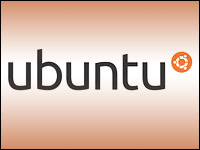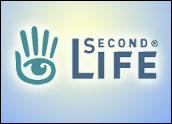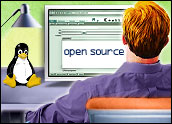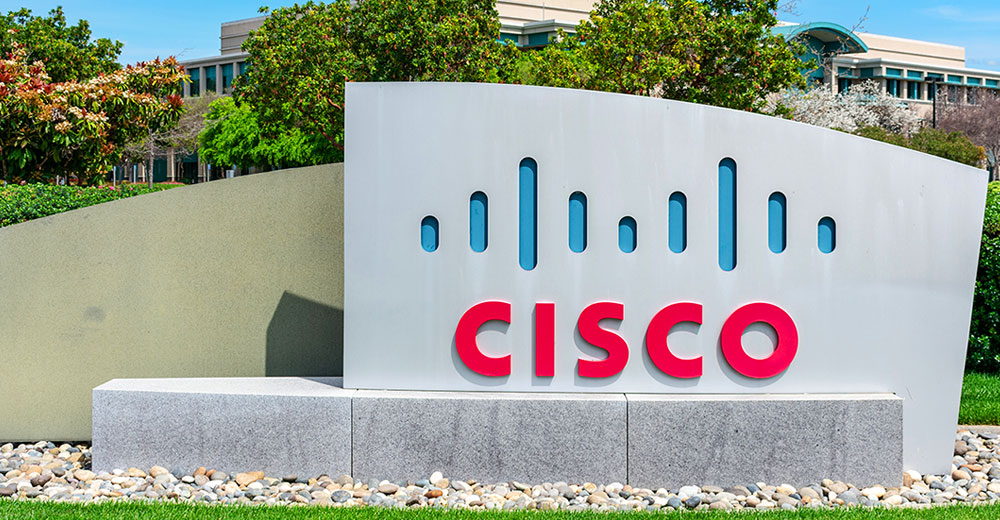Remember back when the primary use for the VCR was recording television shows playing at one time to watch them at a more convenient hour? Time-shifting has long been a technique of gadget lovers, and open source software advocates are no exception.
“Open source participants are spread around the world and need to have a means to communicate,” explained Michael Goulde, senior analyst, Forrester Research. “E-mail is good, but e-mail list protocol is to keep messages short and to the point.”
So, what’s a wordy open source expert to do? Part 1 of this series explored how blogging is one way to reach a broader readership. However, those in the audience who might prefer to take their learning on the road appreciate the portability of podcasts.
The “Linux Action Show,” for example, has produced more than 50 weekly episodes. Hosts Bryan and Chris offer reviews and comments on happenings in the Linux realm; the July 1 show treated Vista security and new Dell Linux systems, among many other topics. The show also takes listener questions, much like a broadcast radio talk show.
That particular podcast boasts a sponsor: Internet domain service provider GoDaddy.com. As podcast software becomes ever more sophisticated, such independent podcasts will be able to run streaming advertisements throughout the audio portion of their shows, noted Mike Goodman, director with the consumer research group of Yankee Group.
Advertising revenue will add more fuel to the fire of specialized shows aimed at narrow audiences, he told LinuxInsider. This bodes well for the proliferation of podcasts aimed at the open source community.
Real-Time to Pod-Time
One of the earliest Linux-related podcasts has its roots in real-time Webcast. The “Linux Link Tech Show” saw its first broadcast in 2003 and bills itself as “The Oldest Continually Running Linux Show on the Planet.” It was started by the founders of the Lehigh Valley Linux Users Group and counts among its co-hosts several academics.
When podcasting came along, the Tech Show was among the first to adopt the new medium. It’s 60- minute to 90-minute weekly show still broadcasts live through a Webcast. However, archives of shows now are available in several formats for those who don’t wish to be constrained by its 8:30 p.m. Eastern Time on Wednesdays airing.
Newbies Listen Up
Not all podcasts are aimed toward developers or even advanced users. A quick search on Podcast Alley yields 154 hits on the key word “Linux.” One entry, “Linux Reality,” describes its target audience as “the new Linux user.” The show posted its first episode in February 2006 and currently is up to nearly 70 broadcasts.
One recent episode of “Linux Reality” featured an interview with an attorney specializing in corporate social and environmental responsibility. The discussion centered on why and how a small business would choose to implement open source software.
Among “Linux Reality’s” sponsors is a big name: O’Reilly Media, publisher of a long-standing and popular line of software books. The show and related site is hosted by Chess Griffin, a self-described technology hobbyist who now works in an unrelated field while staying active in the open source community.
Don’t Fade Away
The list of podcasts with Linux as their subject is littered with those that have experienced “pod-fade.” “Linux Noob” is one example of many programs whose hosts put up one or two episodes and then fade into oblivion. Pod-fade certainly is not unique to the technical world or the open source community. In fact, podcasting is a field that has been built largely on open source software. However, the reality is that podcasting rarely pays the bills for those that spend the enormous time and energy putting shows together, and they often have to quit the project to turn to other priorities.
“Lotta Linux Links” by contrast, is a show with staying power. Independent podcaster Dave Yates is on his 39th episode since December 2005. Like some of the more popular blog sites, “Lotta Linux Links” is first an online tool for finding Linux-related resources. The site sports a banner ad for Linux Laptop Company.
Going Mainstream
Like all cutting edge communication channels, though, podcasting is slowly gaining acceptance in the corporate world. Software maker Novell now has its own series of podcasts called “Novell Open Audio.” Each show features an interview with a Novell employee on a particular topic. The June 27 episode, for example, spotlighted Martin Buckley, chief evangelist and director of product management for Novell’s ZENworks along with Tim Cranny, chief architect with Senforce, discussing ZENwork’s endpoint security management.
The likelihood of the discussion of open source software being co-opted by corporate concerns is slim, though, Laura DiDio, research fellow with Yankee Group, told LinuxInsider.
“This market was born in a collegial atmosphere,” she stressed, “beginning back with Linus Torvalds when he was a 19-year-old college student.”




















































